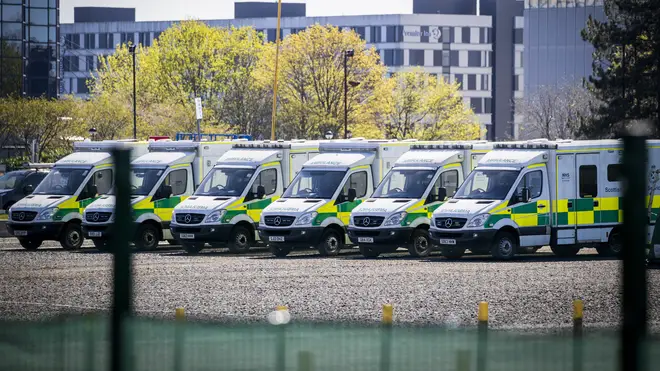
Iain Dale 7pm - 10pm
4 August 2021, 06:54

Microwave engineers, infectious disease specialists and polymer scientists from the universities of Edinburgh, Heriot-Watt and Strathclyde teamed up.
The process of cleaning ambulances and hospitals could be dramatically sped up by a new microwave sterilisation technique developed by scientists in Scotland.
Microwave engineers, infectious disease specialists and polymer scientists from the University of Edinburgh, Heriot-Watt University and the University of Strathclyde have teamed up as part of the research.
Currently, it can take around 30 to 40 minutes to disinfect a single ambulance with conventional chemicals – taking vehicles out of action for long periods and putting pressure on emergency services.
However the new method uses electromagnetic waves, antennas, sensor beacons and a liquid layer to rapidly heat up and sterilise surfaces – which can all be done from a safe distance rather than touching anything during cleaning.

The team was led Dr Symon Podilchak, a professional engineer and senior lecturer of radio frequency technology from the University of Edinburgh and an honorary associate professor at Heriot-Watt.
He said: “I got the idea over a year ago when sterilising baby bottles for my newborn son using a microwave oven. It was when the Covid-19 pandemic was just starting in the UK in early 2020.
“I realised that if bottles could be sterilised in just a few minutes and were safe for a newborn child then it was possible to scale the technique for infected surfaces.
“However, significant research was required to determine the relative distance between the surface and the antenna whilst ensuring safe power levels.
“I also figured out that it would be better to target and focus the microwave beam to the areas most likely to be affected.
“To do this, I reused a technique that I originally developed for charging mobile phones wirelessly.”
He then connected with Professor Marc Desmulliez, a chartered engineer and physicist from Heriot-Watt University who previously developed a microwave powered, open-ended oven.
This device was able to deactivate a live coronavirus (strain 229E) at a relatively low temperature of 60 degrees celsius in just 30 seconds.
Prof Desmulliez said: “The beauty of this new technique is that the surfaces sterilised are not being degraded which was one of the key challenges found with using UV light or aerosol techniques.
“The resulting microwave device can also be portable, and this means it can be applied in multiple other applications beyond ambulances and operating theatres.
“It could be used to sterilise dinner tables in restaurants or clean train or airplane tables and seats prior to welcoming new customers.”
The team funded the initial research themselves using existing lab equipment and goodwill, and they are now seeking funding to manufacture a device that can be installed in ambulances as a proof-of-concept demonstration.
Their study is published in the IEEE Journal of Electromagnetics, RF and Microwaves in Medicine and Biology.